Press reporting after the recent CNN Republican foreign policy debate underscored a deep divide within the Grand Old Party, between interventionists and isolationists. This suggests stark disagreement among the candidates over the use of force. Yet the foreign policies of every Republican candidate, with the possible exception of the libertarian Sen. Rand Paul, are jumbled, if not paralyzed, by challenges emanating from the Middle East.
Two issues consume the region and have consumed American policy: the fight against the Sunni Islamic State and Shiite Iran’s nuclear weapons aspirations. The Republican candidates’ positions on these are by no means clear and are unlikely to fare well in head-to-head debates with Hillary Clinton.
The major Republican candidates — Donald Trump, Ted Cruz, Marco Rubio, Chris Christie and (to be charitable) Jeb Bush — don’t actually differ with each other on countering the Islamic State as much as they agree with President Obama’s aversion to putting American ground forces into Syria.
Despite their stinging rhetoric against the nuclear accord with the mullahs, Republican presidential candidates, to the extent that they have explained how they would handle Tehran after Obama’s nuclear deal goes into effect, are still stressing diplomacy over war, leaving aside the question of how exactly Washington unilaterally renegotiates a multilateral agreement, with the Europeans, Chinese, Russians and Iranians in opposition.
Let’s look further at the nuclear agreement. Cruz and Trump, the two leading Republican candidates, loathe the Iran deal. But they both support Tehran’s and Moscow’s pro-Assad position in Syria, aligning themselves with Obama’s de facto pro-Assad policy, which developed after the president declined to enforce his red line against the Syrian dictator’s use of chemical weapons in August 2013.
The gentlemen could, of course, support Syrian President Bashar Assad and sanction or bomb Iran’s nuclear program, since both men have expressed their fondness for the use of massive American air power against our Middle Eastern foes. But as Obama has discovered, the two positions of support for the nuclear deal and opposition to Assad are in tension.
U.S. Airstrikes On ISIS in Iraq and Syria – Graphiq
Both Trump and Cruz highlight the futility of long-term American military commitments in the Muslim world.
If new, more powerful sanctions failed to stop Iran’s nuclear program (and both men appear to back the sanctions approach), then attacking Iran’s nuclear facilities could be the beginning of a long conflict, with all the unforeseen contingencies and commitments that war always brings. It seems incongrous that two candidates who want to put distance between the United States and the Muslim Middle East would engage America in a war with the Middle East’s preeminent Muslim power.
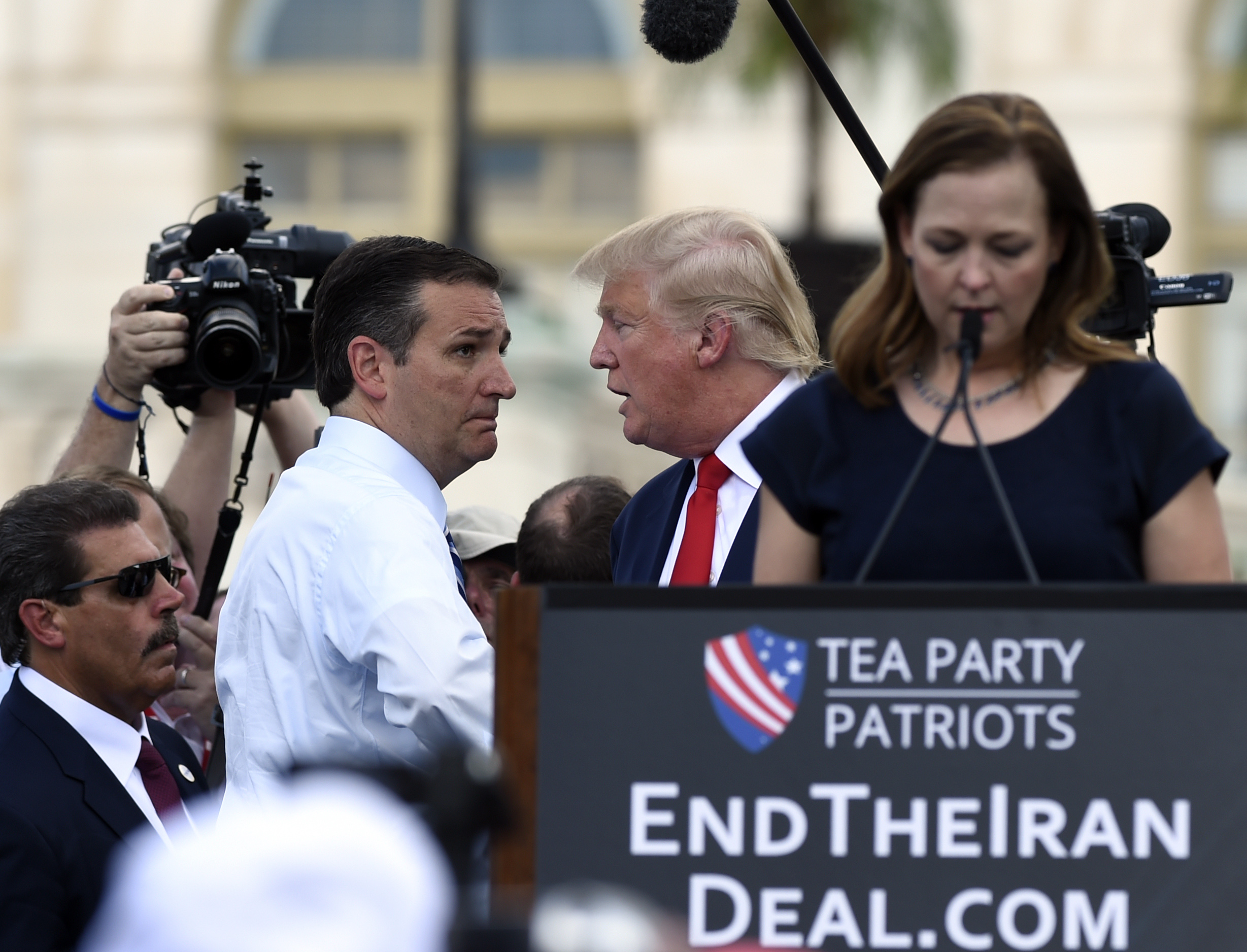
Ted Cruz and Donald Trump, the two leading Republican candidates, loathe the Iran deal. (AP Photo)
The candidates’ approaches to the Islamic State strongly suggest that not even Rubio and Christie, probably the most hawkish, anti-Iranian of the prime-time Republican candidates, would really be prepared to confront Tehran’s muscular, sectarian-war-breeding adventurism or the flaws in the nuclear agreement. Those flaws include a questionable verification system, the uncontrolled development of nuclear-capable ballistic missiles, the dubious utility of “snap-back” sanctions, and a sunset clause that allows Iran an unrestricted, industrial-scale atomic program within 15 years.
In an interview with the Atlantic’s Jeffrey Goldberg, Rubio has gone the furthest in explaining how he would handle the nuclear issue. As Rubio would put it to Iran’s supreme leader, Ali Khamenei: “Look, I understand the previous administration pursued this deal, but … I don’t agree with that decision. I’m going to reimpose U.S. sanctions. In fact, I’m going to go back to Congress and ask them to increase them.”
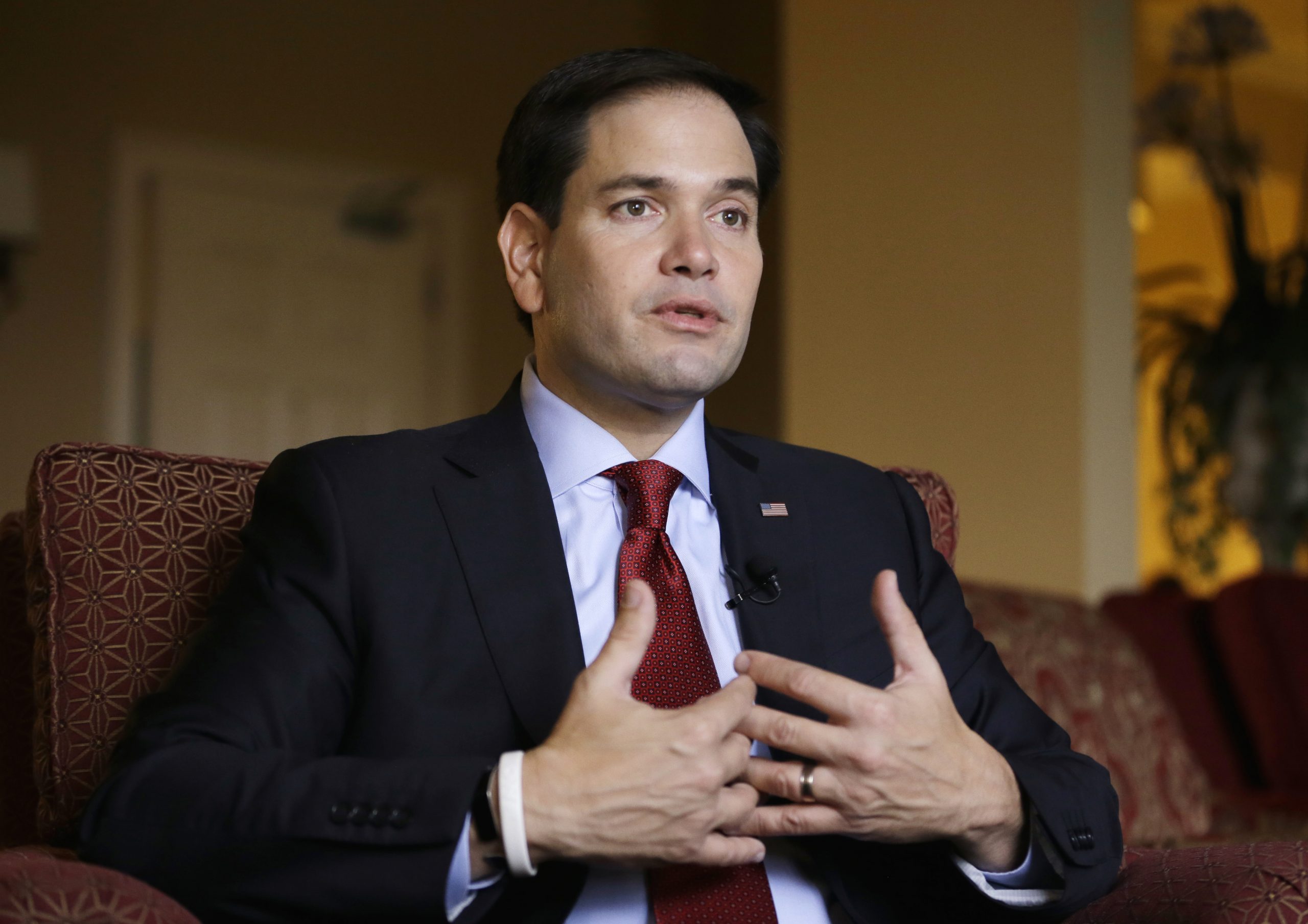
In an interview, Sen. Marco Rubio has gone the furthest in explaining how he would handle the nuclear issue. (AP Photo)
To the senator’s credit, he hasn’t backed away from suggesting that he is prepared to call for military strikes if a renegotiated deal isn’t possible. Rubio hasn’t yet answered the question, and probably would prefer not to, about what he would do if an American preemptive strike provoked Iranian terrorism. Would he be prepared to respond with even more forceful military measures, including a ground invasion, if the mullahs did not cease and desist?
It’s not hard to imagine Hillary Clinton in a debate and on the stump working a Republican candidate through this possible unpleasant evolution. Rubio, Christie and Bush have certainly articulated a nuclear Iran’s menace to the United States and Israel and the dangers of regional proliferation given the flaws of the accord. But they probably haven’t done it sharply enough to shield against a “give-the-deal-a-chance” frontal assault that Clinton is surely preparing.
A Republican president is likely to keep the agreement in place, which will handcuff American foreign policy and inevitably render a Republican approach to the Middle East similar to Obama’s. If Washington can’t use sanctions against the Islamic republic for its nefarious behavior abroad and its domestic oppression, it really can’t do anything without escalating to war, which won’t happen.
The nuclear agreement is clearly understood by Tehran, and by our European allies, to preclude reintroducing sanctions for non-nuclear reasons. If an American president sanctioned Iran for any reason, he or she would have to be prepared to strike the nuclear program preventively, or give up any pretense of curtailing the mullahs’ nuclear drive.
Committing troops
Willingness to put large numbers of American troops into harm’s way is where foreign policy gets brutally hard and even Republican hawks can start to obfuscate. The wars and difficult occupations in Iraq and Afghanistan, and President Obama’s decision to leave these countries, has obviously palled Republican enthusiasm for foreign adventures, even against a Sunni jihadist organization that has bloodied and convulsed Western cities.
Memories of Saddam Hussein’s wars of aggression, the United States’ 12-year conflict with the Iraqi dictator, the tyrant’s documented quest for weapons of mass destruction, his support for terrorism, the United Nations’ sanctions regime arrayed against him and his Orwellian annihilation of Iraqi civil society have faded as Cruz, Trump and Paul have led the way among Republicans in recasting him as a bulwark of stability and resistance against Tehran and Islamic militancy.

An Iraqi family walks past a toppled statue of the Iraqi leader Saddam Hussein in Baghdad. Memories of the Iraqi dictator’s ruthlessness have faded as Republicans have recast him as a bulwark of stability and resistance against Tehran and Islamic militancy. (AP Photo)
It’s now fairly easy to imagine Ayman al-Zawahiri, Osama bin Laden’s successor and long-time right-hand man, returning to Jalalabad in Afghanistan, whither bin Laden flew from Sudan in 1996 and began al Qaeda’s holy war in earnest. Would Trump and Cruz send 20,000 soldiers back to Afghanistan to hold the line for as long as it takes?
As Carly Fiorina pointed out during the CNN debate, Trump sounds exactly like Obama when he bemoans the waste of “trillions of dollars” on the wars in Iraq and Afghanistan. And Cruz is adamantly opposed to nation-building in the Middle East, which means the Afghan National Army would collapse even more rapidly under a Cruz presidency than it has under Obama.
Would Rubio and Christie try to stop al Qaeda’s return to Afghanistan? Possibly. But given how bad it has gotten in Afghanistan under Obama, what an arduous slog it would be to clean large swaths of the country of Taliban again, it’s not that hard to imagine them calling it quits and defaulting to defensive counterterrorism, which is exactly what Obama has done.
Look at the serious hawks running for the White House among the CNN debate cast: Rubio, Christie, Bush and perhaps Fiorina. All of these candidates, like Trump, Cruz and Paul, want to increase defense spending. In Cruz and Paul’s case, after having happily agreed to slicing defense spending during Obama’s presidency.
That’s an important contrast with Obama and likely with Clinton, who has remained vague about her future plans for the Pentagon. She gave no indication during her time as secretary of state that she thought Obama was dangerously slashing defense appropriations. As Robert Kagan pointed out in Of Paradise and Power, men approach threats differently depending on how they are armed: with a knife, a man retreats from a bear; with a gun, he kills the beast.
This point has never been lost on the Left; libertarians’ historic aversion to military appropriations springs, in part, from the same understanding. A Republican candidate who advocates more defense spending leaves open the option of a more assertive America. Cruz, if he is serious about substantially increasing money for defense, would at least create the conditions for a more vigorous assertion of U.S. power even if he has no intention of reanimating American hegemony.
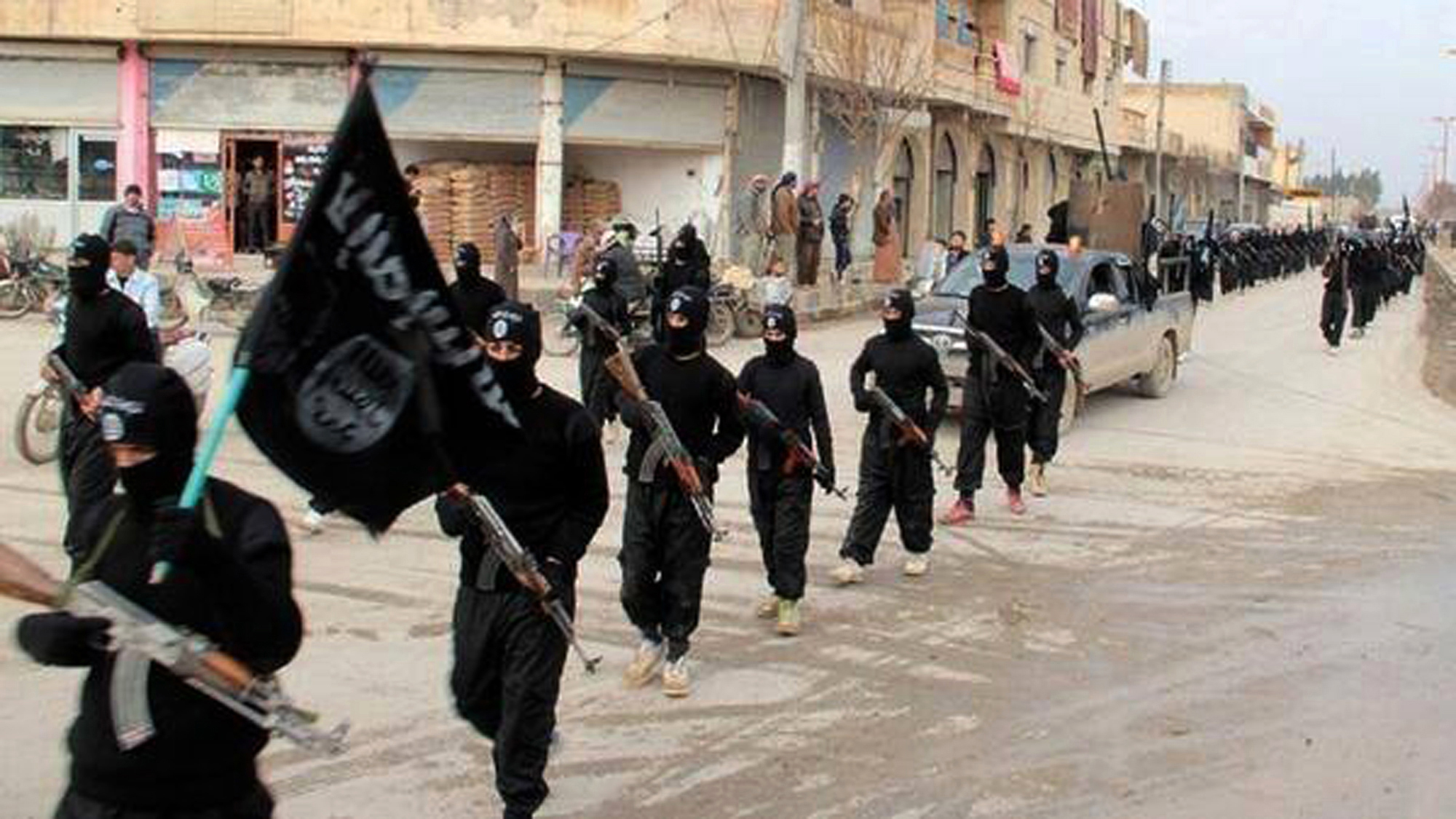
One issue that consumes the region and has consumed American policy: the fight against the Sunni Islamic State (AP Photo)
But when it comes to actually using force against the Islamic State, none of the top-tier hawks except Christie has advocated putting American troops in any numbers into Syria, and have been vague about how many troops they would add to Obama’s 3,500 deployed to Iraq. The hawks don’t believe, as Cruz and Trump apparently do, that airpower is sufficient. All of the major Republican candidates want our allies, especially our Muslim allies, to supply the ground forces to defeat the Islamic State. This is Obama’s position as well.
Christie has been bolder. He would “… set a no-fly zone up first and … [then] start to unite our allies in the Middle East — the Saudis, the Emiratis, the Egyptians, the Jordanians, to fight ISIS.” And he has mocked Obama’s decision to send in very small teams of special operations forces into Syria as woefully insufficient, saying that if the option of sending in our Arab allies failed, he would send in U.S. forces and go “whole hog.”
Who does the fighting?
In the CNN debate, Rubio and Christie stressed that Sunni Arab states would be more forthcoming with their troops if a real leader were in the White House, someone who clearly signaled to their rulers and the (Sunni) Turks that Washington wasn’t de facto in an alliance with Shiite Iran and its Syrian ally, the Shiite Alawite regime of Assad. Given their strong opposition to Obama’s nuclear diplomacy, Rubio and Christie would, it appears, demonstrate this pro-Sunni resolve by walking away from Obama’s atomic accord.
Leaving aside the problems of dumping the nuclear deal, does the rest of this really make much sense? Do Rubio and Christie somehow believe they could be more convincing than George H. W. Bush was in the 1991 Persian Gulf War? Bush and his Secretary of State James Baker worked hard to build an Arab coalition notable for one achievement: an aversion to putting itself anywhere near the frontlines.
None of the Arab states that Rubio and Christie have mentioned has expeditionary forces. And as Arab military affairs expert Ken Pollack has often pointed out, when Arab modern armies actually try to move any distance from home, they break apart.
If America were to replicate the first Gulf War, that is, the president sends in the U.S. Army for the decisive combat, it’s possible to envision, just barely, a few Sunni Arab rulers sending token units for less demanding duty.
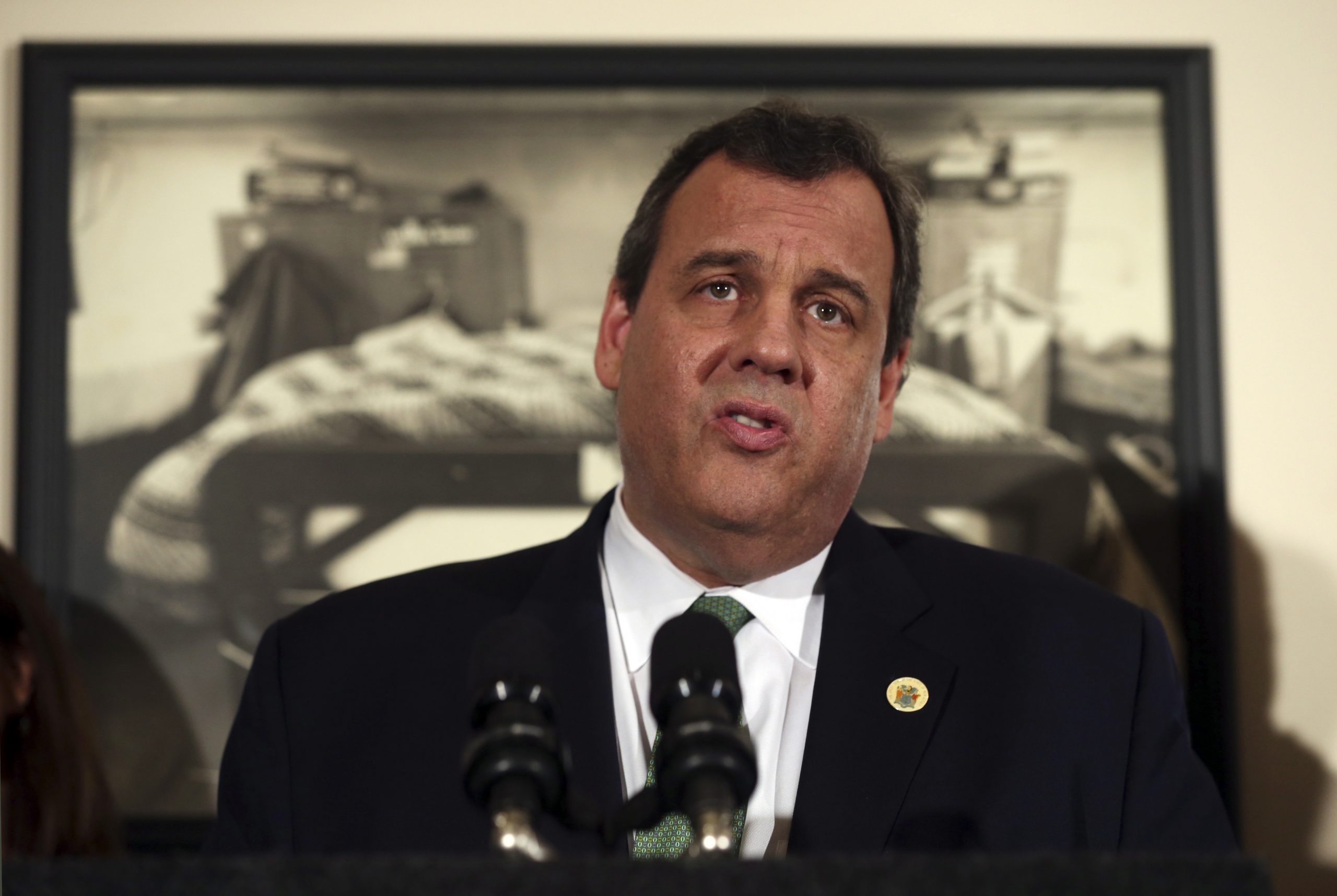
Gov. Chris Christie said he would “set a no-fly zone up first and … [then] start to unite our allies in the Middle East — the Saudis, the Emiratis, the Egyptians, the Jordanians, to fight ISIS.” (AP Photo)
And even more important, why would Sunni Arab regimes, especially the Wahhabi-friendly dynasties of the Arabian peninsula, want to align themselves against Sunni jihadists who have been fighting against Shiite regimes in Mesopotamia and the Levant? Assad and his Iranian enablers have probably slaughtered more Sunnis than any Shiites in history. Egypt’s generalissmo, President Abdel Fattah al-Sisi, does express some sympathy for Assad: The growing violence in Egypt following Sisi’s coup against an elected Muslim Brotherhood government has left him acutely sensitive to Islamist rebels.
But Sisi refused to send troops to Yemen, where his predecessor, the pan-Arabist ruler Gamal Abdel Nasser, lost 25,000 soldiers in the 1960s, despite Saudi requests for him to do so. And Sisi’s regime is completely dependent upon Saudi money. Given how poorly Arab armies fight, thousands of Arab soldiers would surely die battling the Islamic State.
Would the United States really want to put such pressure on the Egyptian regime or the Saudis, who appear to be doing poorly in their air war and naval blockade against the Shiite Houthis in Yemen? In retrospect, Richard Nixon’s decision to empower the Shah of Iran as a local hegemon doesn’t look so bright. All Arab regimes, be they military dictatorships or monarchies, are fragile.
And barring a sustained, large-scale Islamic State bombing campaign against Turkey, it’s unimaginable that Turkish President Recep Tayyip Erdogan would send forces into Syria to defeat the caliphate. As should now be obvious, Erdogan and the Turkish army are only comfortable temporarily going abroad to pound the guerrilla-cum-terrorist Kurdistan Workers Party. And besides Erdogan, there is nothing that drives Turkish secularists more ballistic than the idea of the Turkish army intervening in “Arab wars.” Turkish secularists still account for about 50 percent of the popular vote.
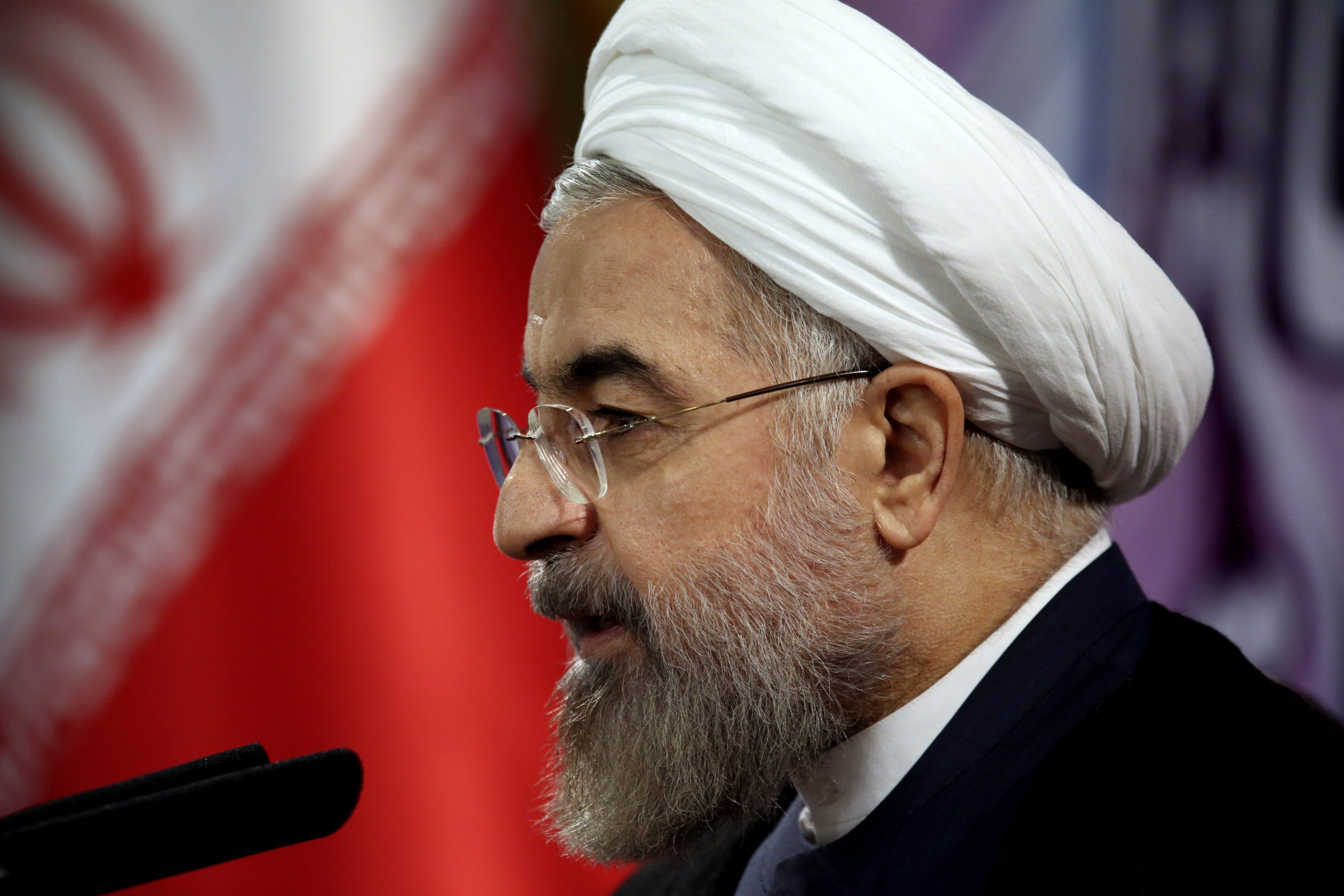
Rubio, Christie and Bush have articulated a nuclear Iran’s menace to the United States and Israel and the dangers of regional proliferation given the flaws of the accord with six world powers and Iranian President Hassan Rouhani. (AP Photo)
Combine that with Erdogan’s loathing for Assad, and his general sympathy for Islamist causes, and the idea that “Muslim powers” could somehow save the Americans the pain of crushing the Islamic State is untethered from the basic ABCs of Middle Eastern power politics. Without the Turks, who have far and away the largest and the only deployable army among friendly Muslim Middle Eastern states, the idea of local powers doing the heavy lifting in Syria is, to put it politely, bizarre.
Obama’s decisions to withdraw from Iraq and Afghanistan and conclude a nuclear deal with the Islamic Republic have put Republicans in a difficult corner. Obama’s foreign policy has been transformative, as much for the United States as for the Middle East. The disarray of the Republican Party, the salience of Trump and Cruz and the weakness of the hawks, shows that changing policy after Obama’s departure isn’t likely.
One suspects that regardless of what happens in the West’s struggle with Sunni Islamic radicalism and with Iran’s nuclear weapons quest, Obama will savor the chaos he has wrought among those who annoy him the most. Clinton may be smiling, too.
Reuel Marc Gerecht is a senior fellow at the Foundation for Defense of Democracies. Thinking of submitting an op-ed to the Washington Examiner? Be sure to read our guidelines on submissions.
